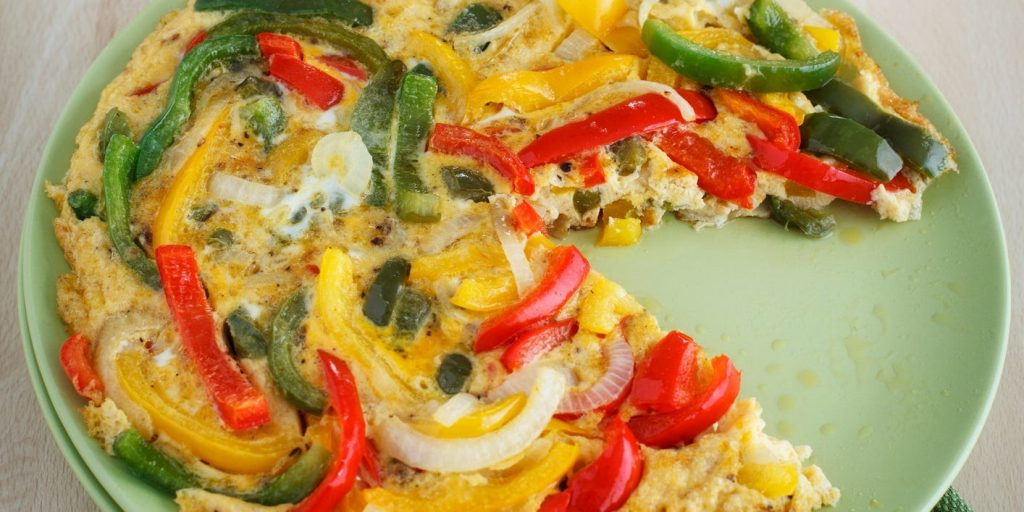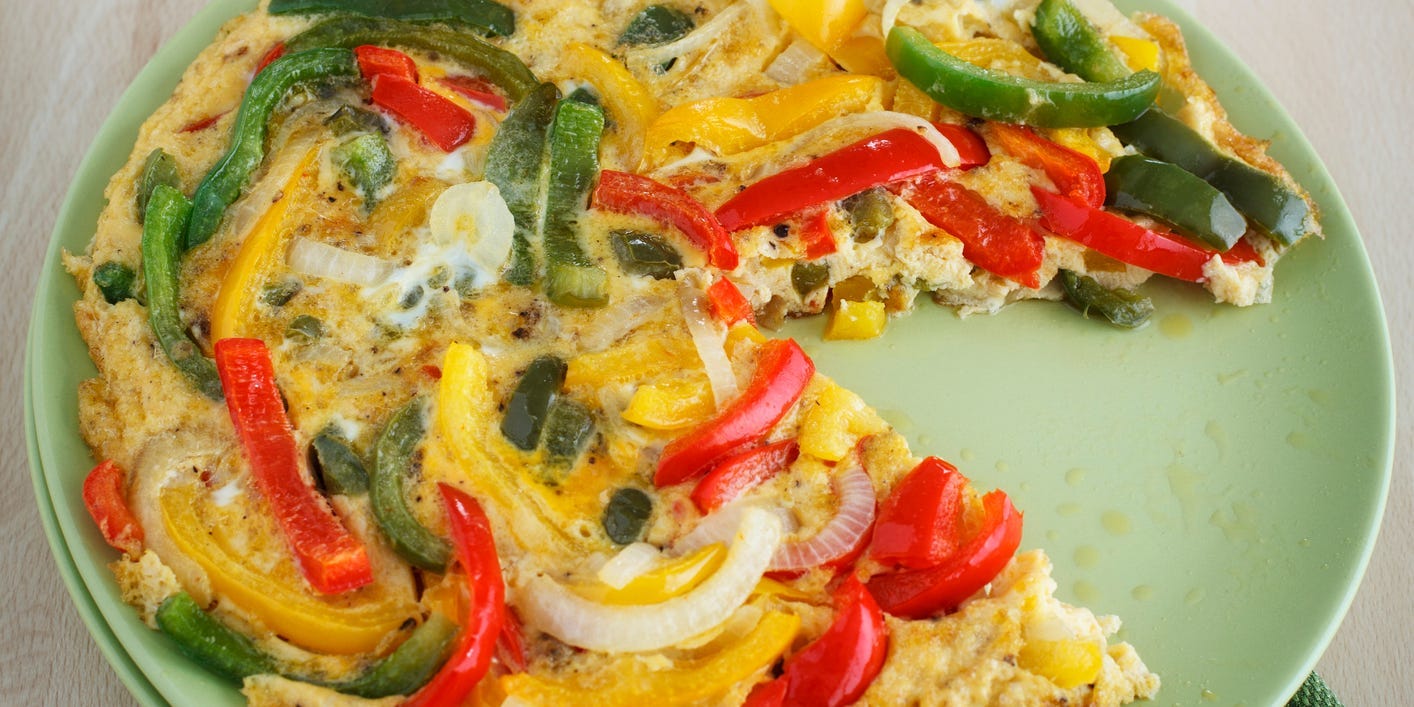
Westend61/Getty Images
- Some healthy low-carb foods include salmon, eggs, beef, and watermelon.
- Eating low-carb foods can help you manage your weight and blood sugar.
- A low-carb diet is usually one where around 25% to 35% of your daily calories come from carbs.
- Visit Insider's Health Reference library for more advice.
Low-carb foods have become more sought-after as low-carb diets, like keto or Atkins, surge in popularity.
Most people try low-carb diets as a way to lose weight or manage their blood sugar levels, says Natalie Allen, RD, clinical assistant professor of biomedical sciences at Missouri State University.
Depending on how much you're limiting your carb intake, a low-carb food typically is anything with less than 15 carbohydrates per serving. So with that, here are some low-carb foods you may want to consider adding to your diet.
1. Olives
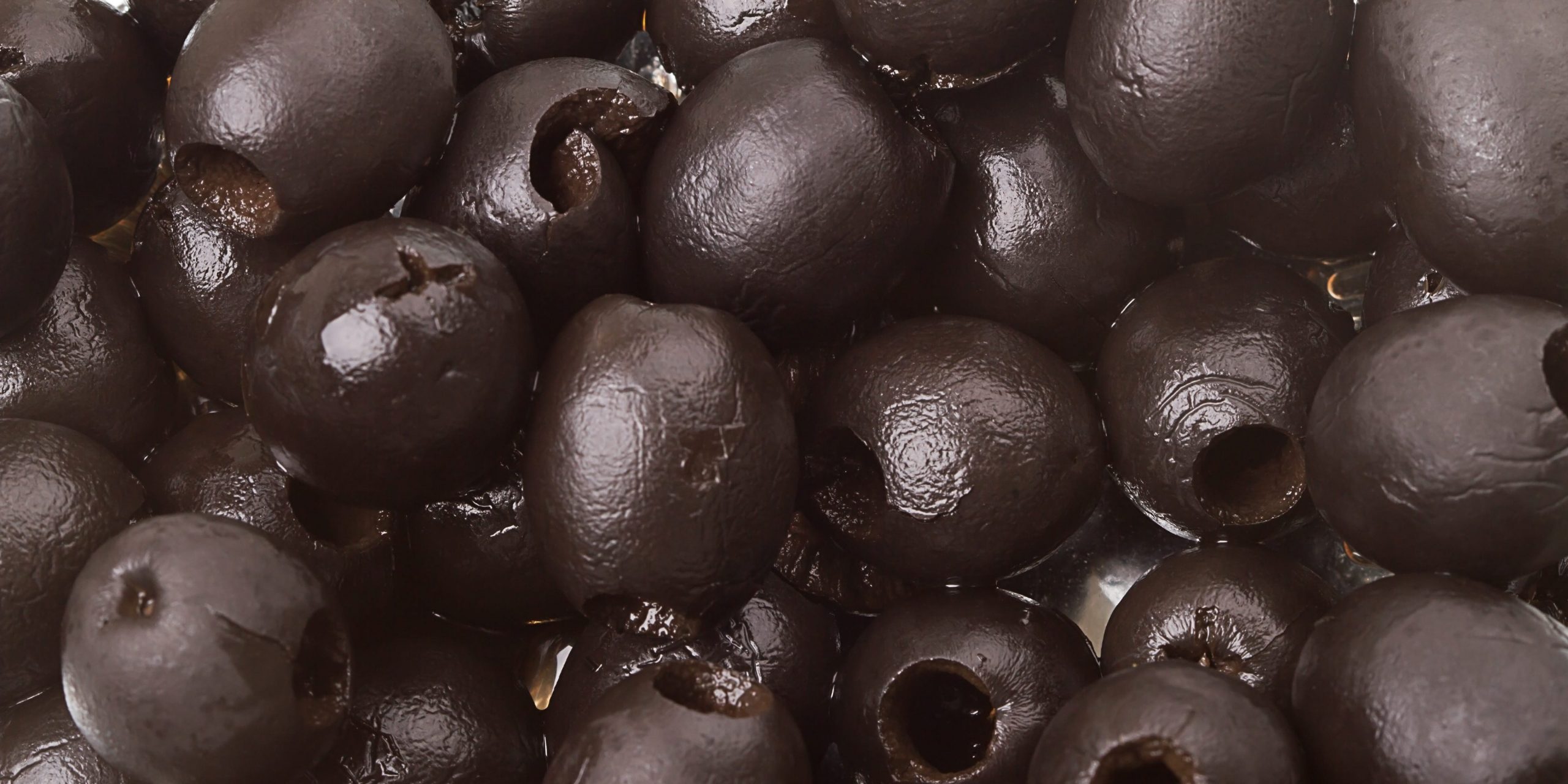
Shutterstock
Olives are high in fat and iron, while also being low in carbohydrates. You can eat olives plain or add them to omelets, tacos, or salads.
Five black olives contain:
- 1.5 grams (g) of carbohydrates (0.55% DV)
- 29 calories
2. Almonds
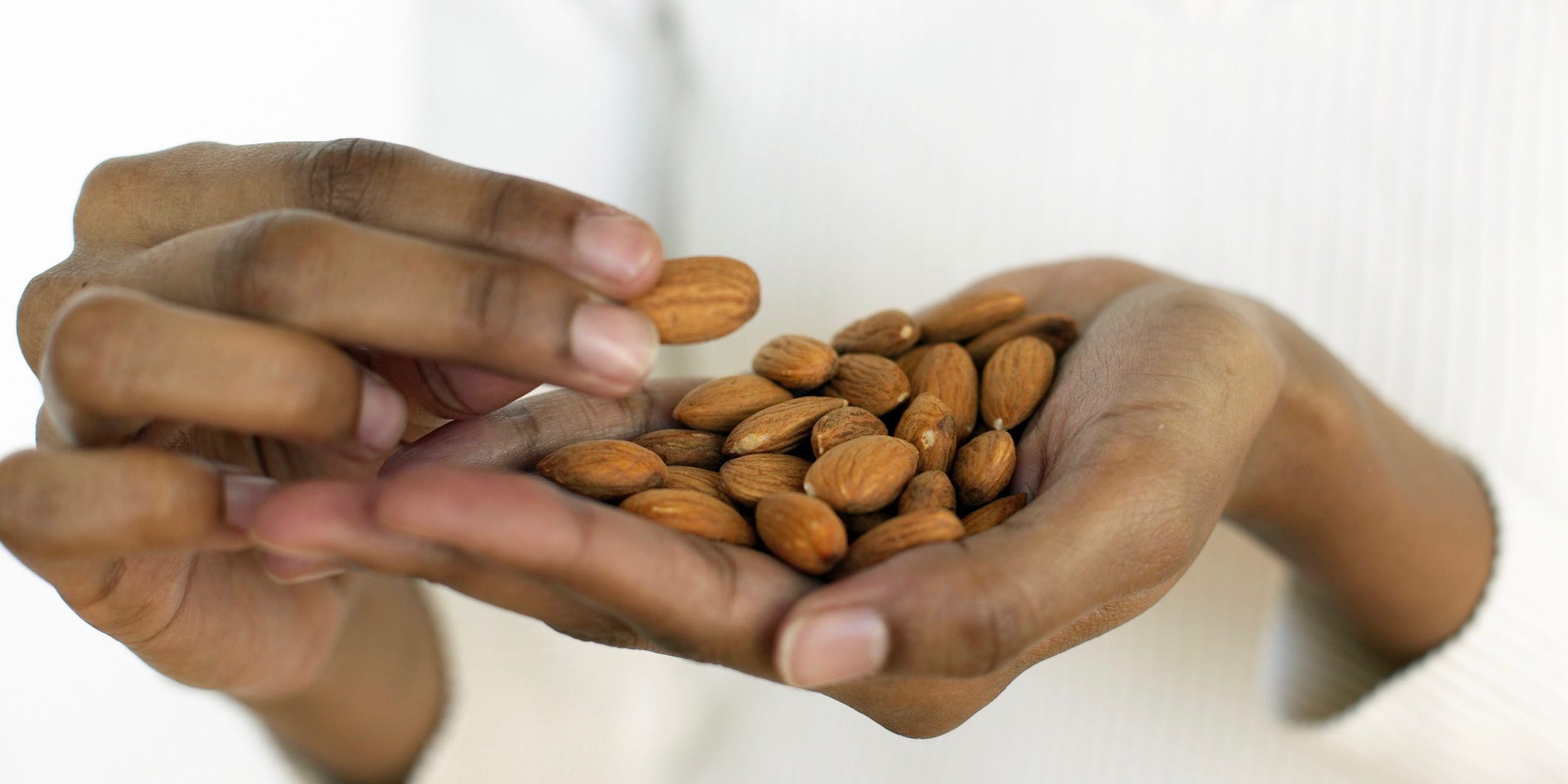
Stephen Welstead/Getty Images
Almonds are loaded with fiber and magnesium. Grab a handful to munch on as a snack or add them to a salad.
One ounce of almonds contains:
While almonds are higher in calories than other kinds of low-carb foods, their high-fiber content keeps you full for longer, which could result in weight loss.
In fact, a 2014 study found patients who ate a reduced-calorie diet with 50 grams of almonds daily lost more weight over three months than participants who ate a reduced-calorie diet without almonds.
3. Cheese
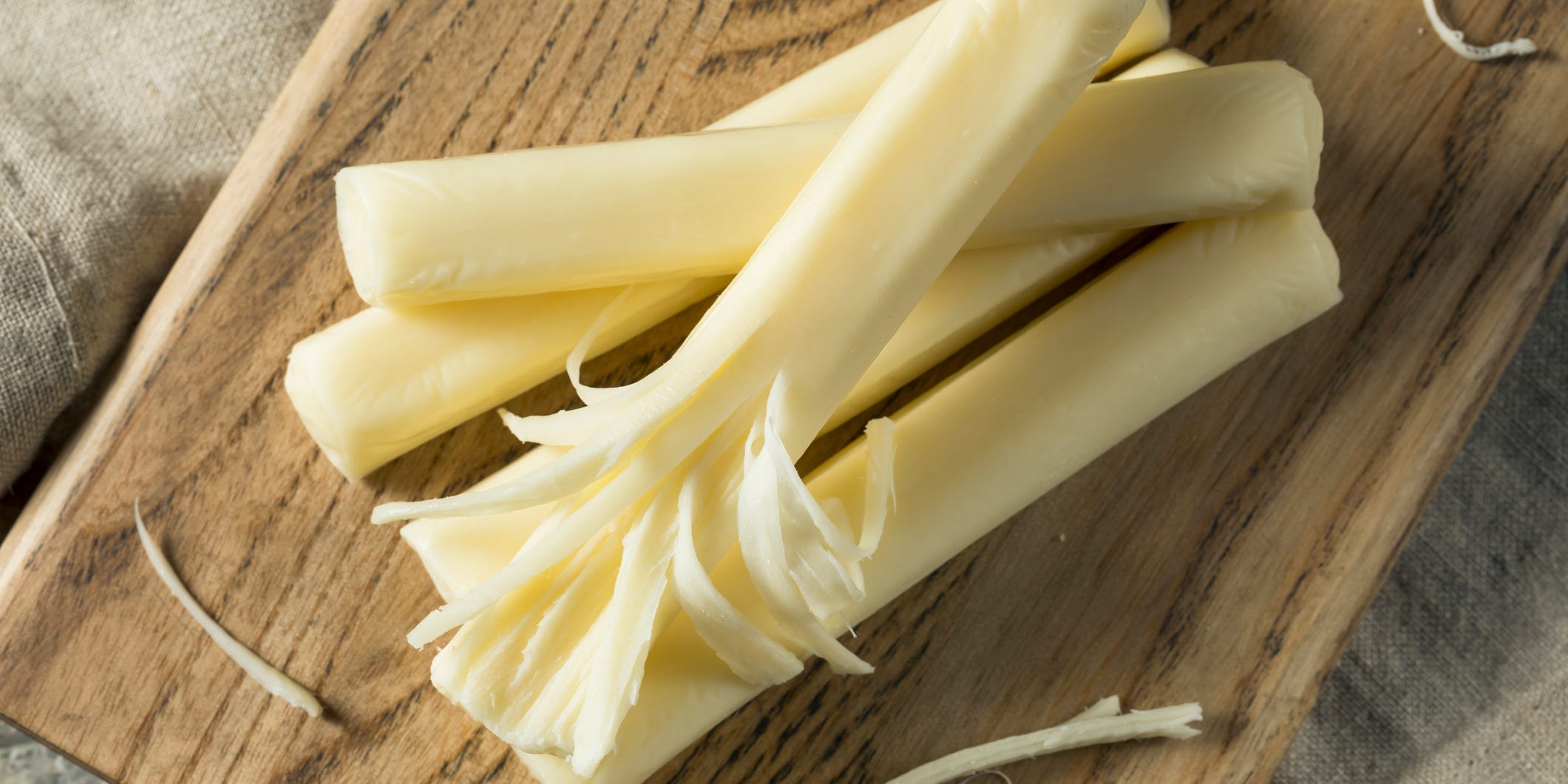
bhofack2/ Getty Images
Cheese is a tasty low-carb option that can be eaten on its own or paired with meat or veggies.
One slice of swiss cheese contains:
4. Green bell peppers
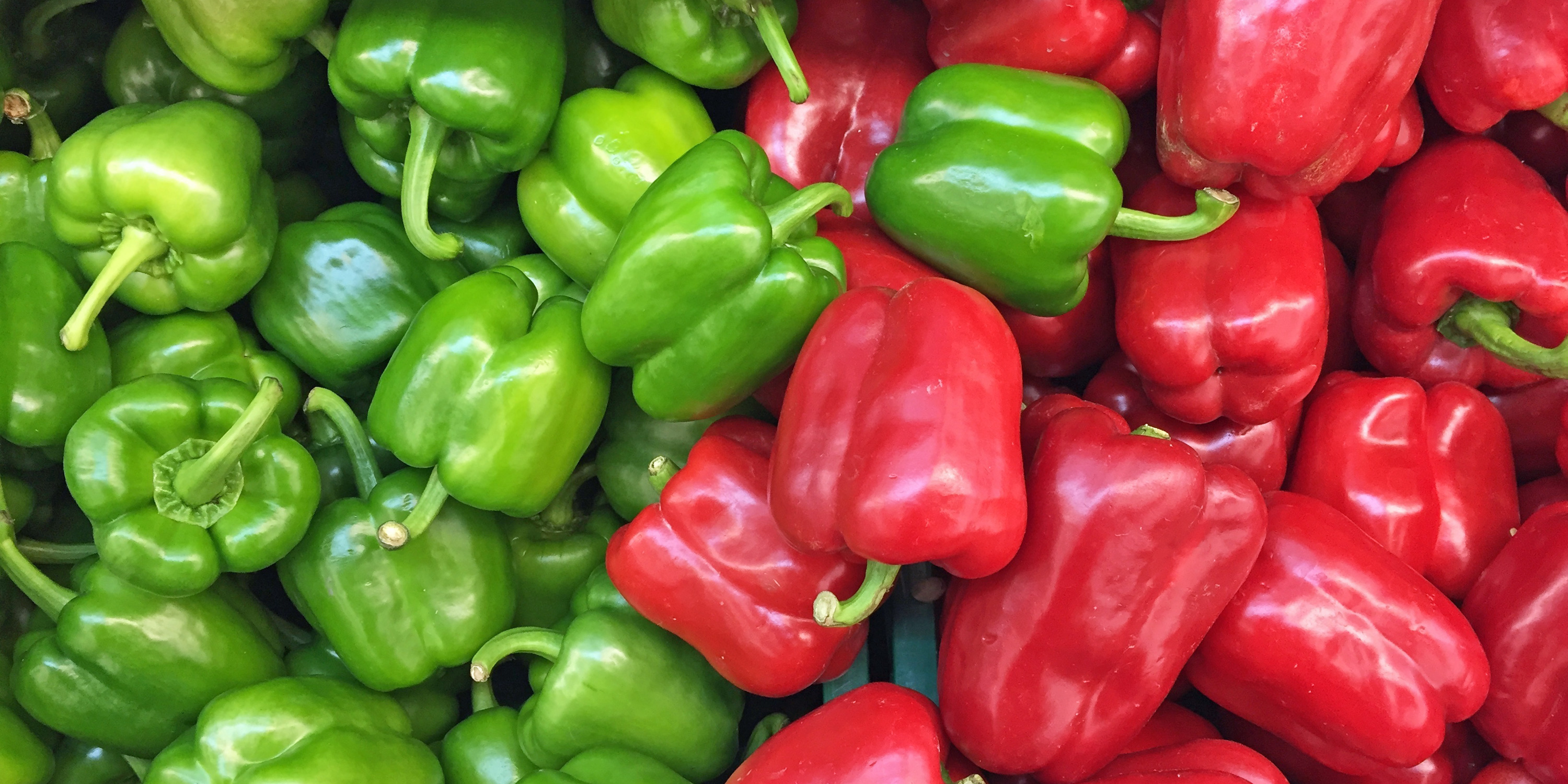
Thankakornbb/Shutterstock
Green bell peppers can be eaten plain or used in a variety of recipes from sauces and soups to meatloaf and salads. Green bell peppers are also high in vitamin C, which helps support the immune system.
One green bell pepper contains:
5. Carrots
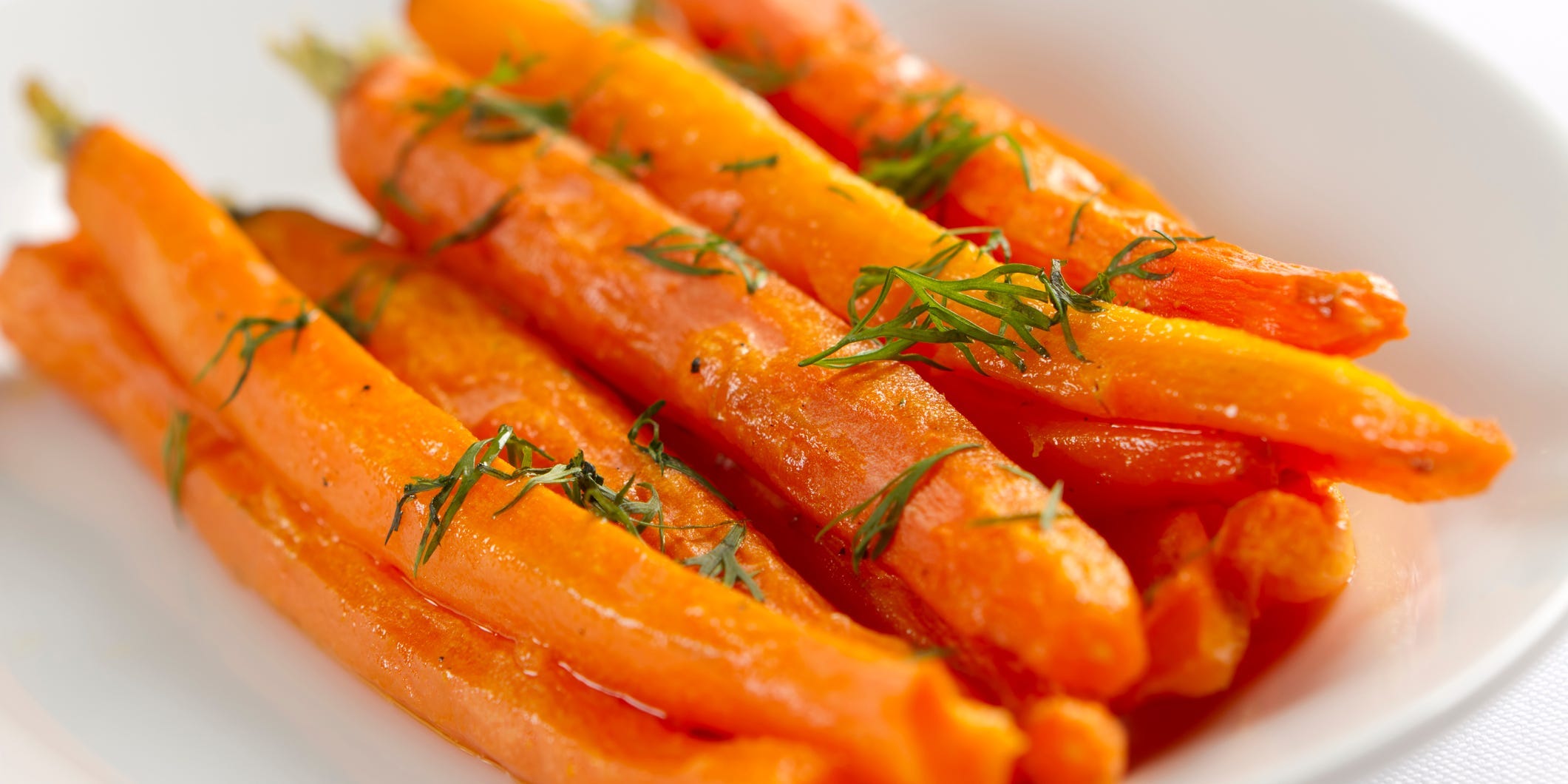
boblin/Getty images
Raw carrots are crunchy, which may help you feel more satisfied compared to softer foods and help you eat less overall. They make a great snack by themselves or they can be roasted and served as a side dish with a meal.
One cup of raw carrots contains:
6. Beef
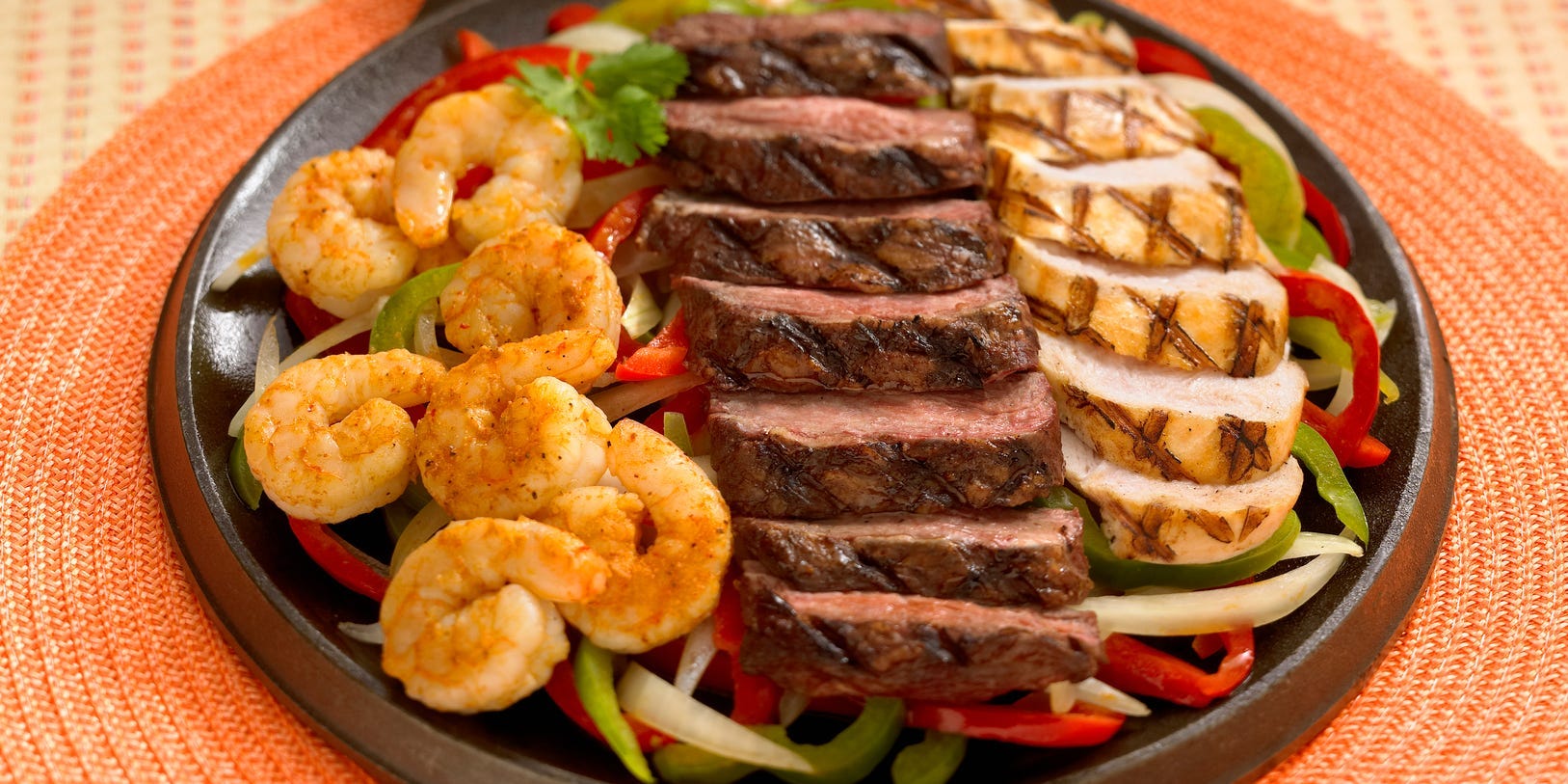
Lew Robertson/Getty Inasges
Beef is filling and also loaded with iron, an essential mineral that helps your body produce red blood cells. Most lean meats contain nearly zero carbs.
One cup of ground beef contains:
7. Plain Greek yogurt
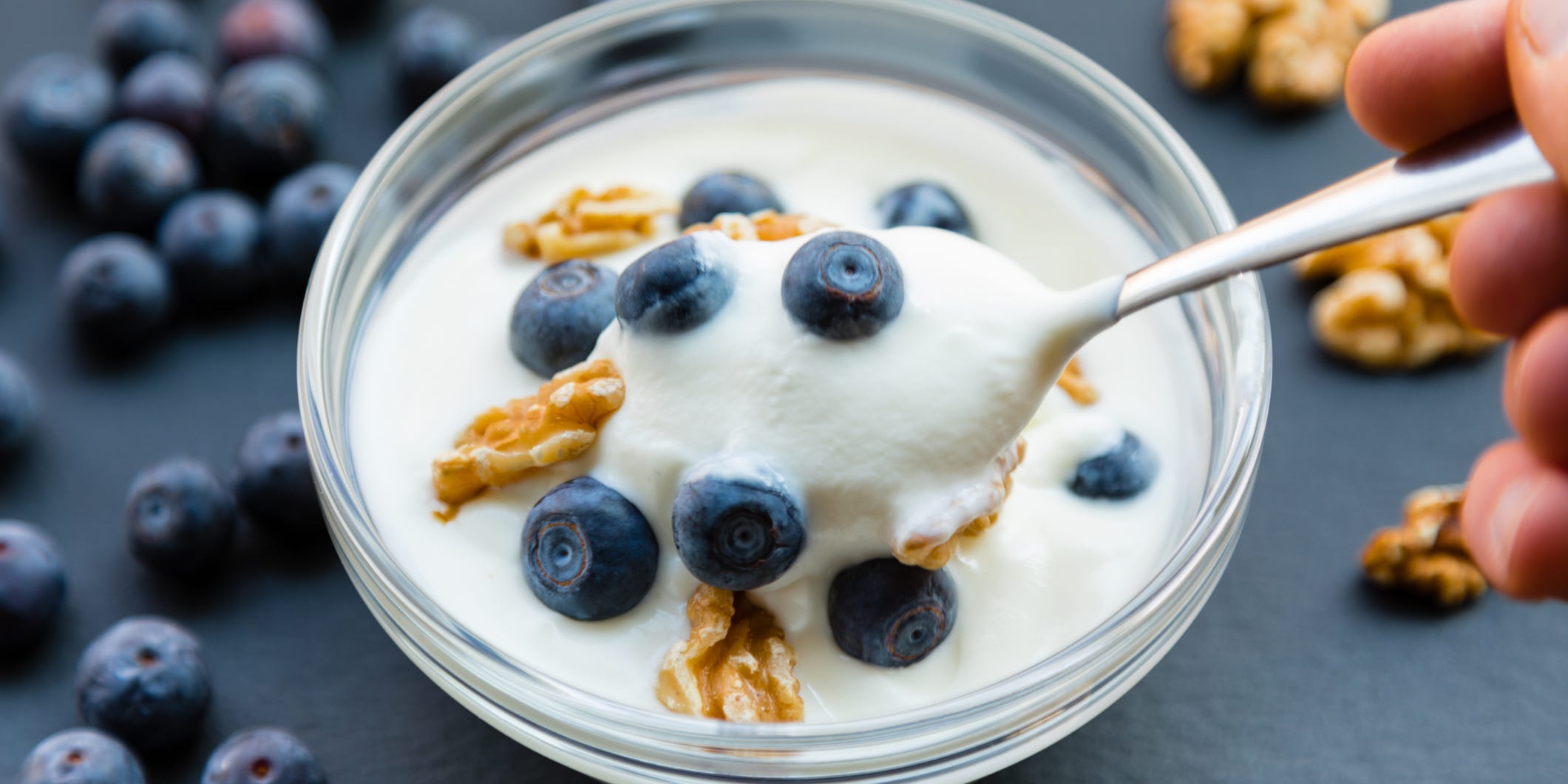
IGphotography/Getty Images
Plain greek yogurt is packed with both protein and calcium, Proctor says. Top it with berries for a nutritional breakfast or put it in smoothies with frozen fruit and spinach.
One cup of plain, nonfat Greek yogurt contains:
8. Salmon
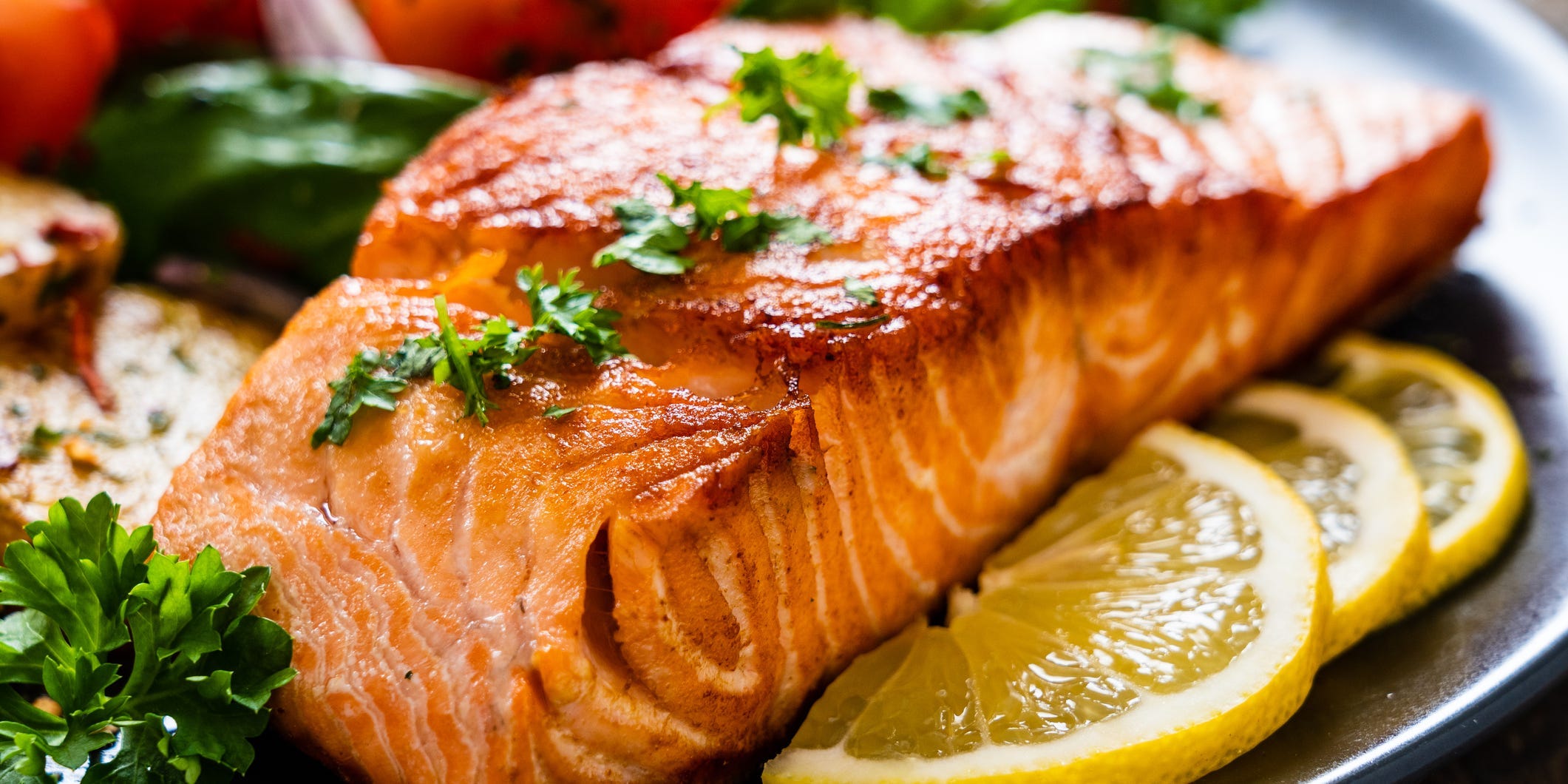
gbh007/Getty Images
Salmon has essentially no carbohydrates and is high in protein and omega-3 fatty acids, which can improve your heart health.
Grilled or oven-baked salmon makes a great lunch or dinner, or you can buy smoked salmon at the store to add to salads.
Three ounces of salmon contains:
9. Eggs
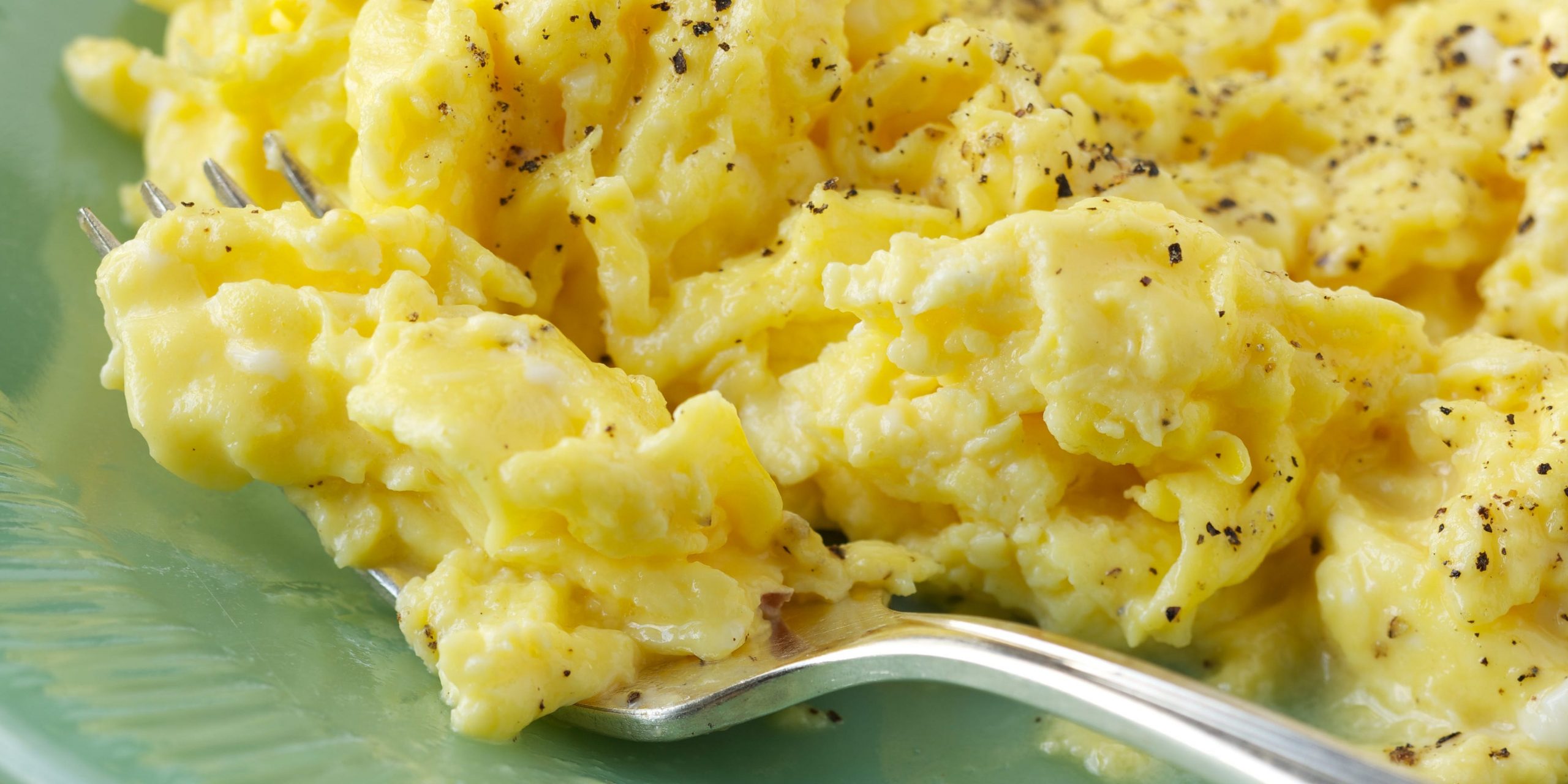
billnoll/Getty Images
Eggs are some of the most nutritious foods you can eat and they're incredibly versatile. Scramble them for breakfast or hard boil them to keep in the fridge for snacks.
One egg contains:
10. Watermelon
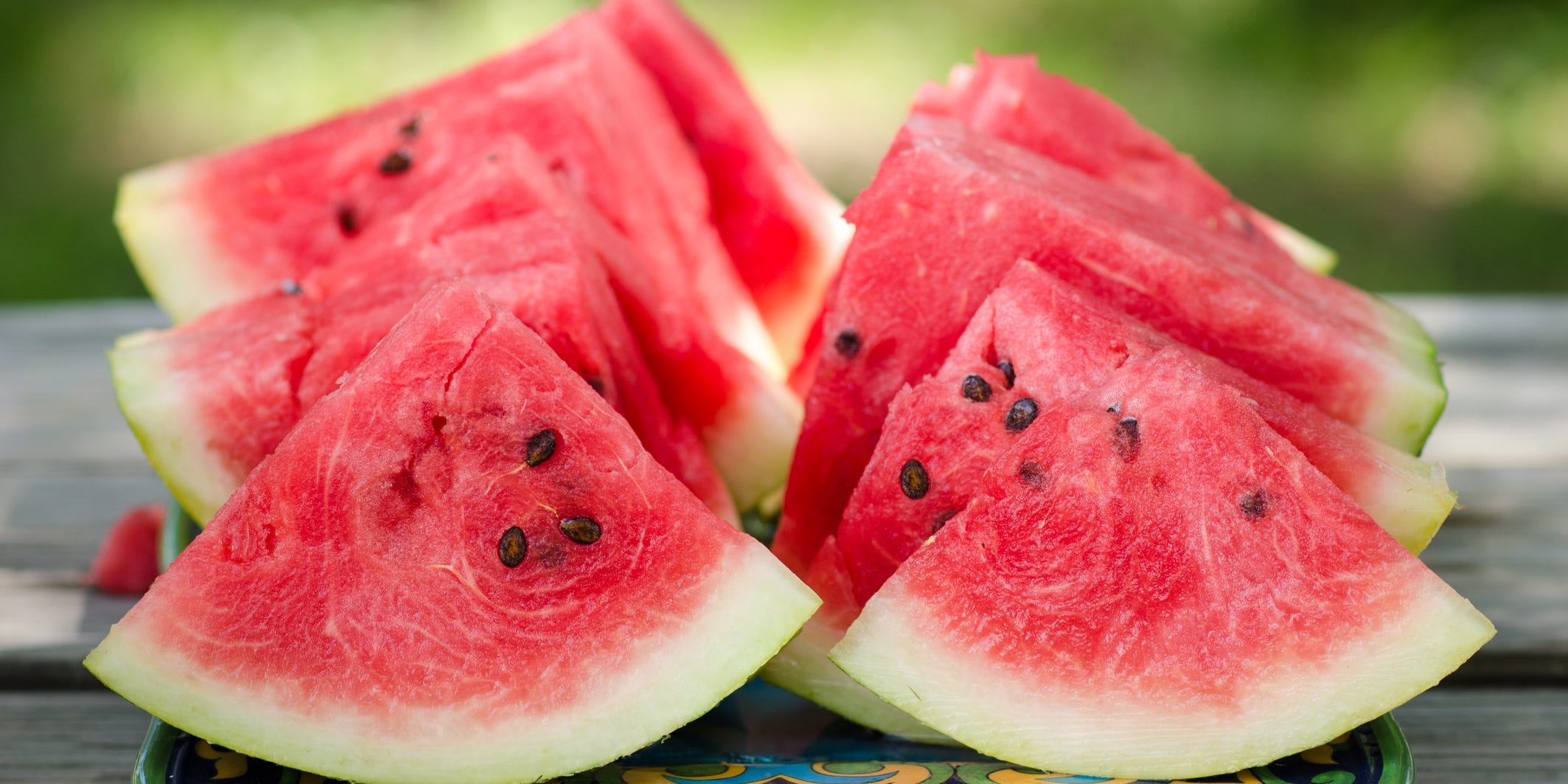
Kevin Reid/ Getty Images
Watermelon is a popular summer food loaded with vitamins and minerals. You can eat it plain or add it to a salad with tomatoes and feta cheese for a fun twist.
One cup of watermelon contains:
Insider's takeaway
Reducing your intake of carbohydrates may help you lose weight and control blood sugar levels, but a low-carb diet can be difficult to maintain long term, Allen says.
Severely limiting your intake of carbohydrates and avoiding certain foods with carbs, may also put you at risk of not consuming enough vitamins and minerals since many fruits contain essential nutrients your body needs. Therefore, to determine what's right for you, consult with your doctor before beginning any extreme diet, low-carb or otherwise.
While reducing your intake of carbohydrates can help you maintain a healthy weight, the keys to an overall healthy diet are moderation, variety, and balance, Allen says. Consider your portion sizes, level of physical activity, and food's overall nutritional value when choosing what to eat.
